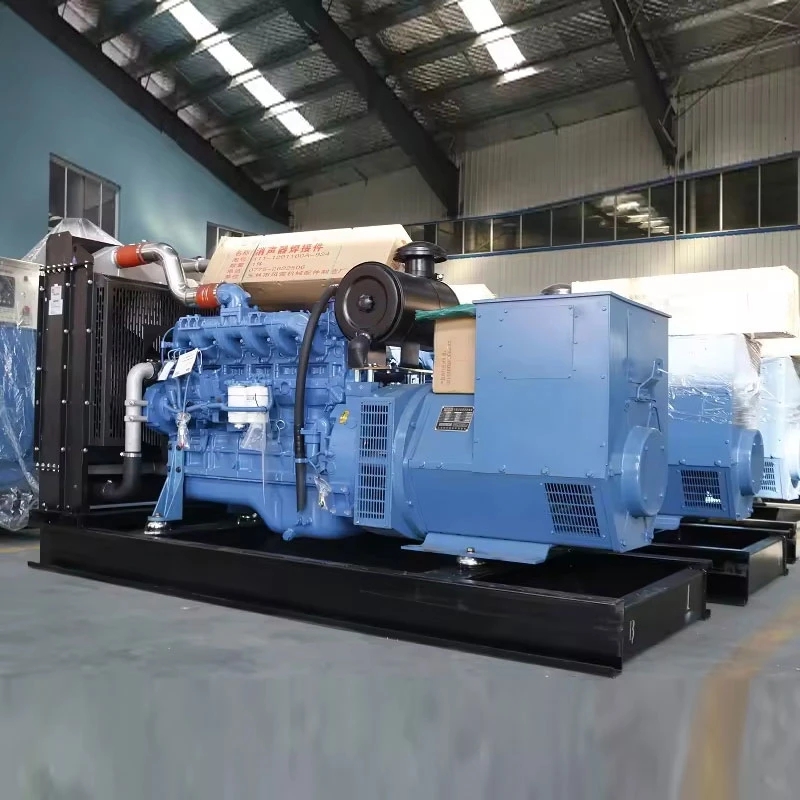Introduction
Diesel generators are essential power sources in many industries and locations worldwide, providing a reliable backup power supply when the grid fails. In hot climates, the demand for power generation equipment is even more pronounced due to the extreme weather conditions that can lead to power outages. In this article, we will explore the efficiency, reliability, and maintenance considerations of diesel generators specifically designed for hot climates.
Efficiency of Diesel Generators in Hot Climates
Hot climates pose a unique set of challenges for diesel generators, impacting their efficiency and performance. The high temperatures can affect the cooling systems of the generator, leading to overheating and reduced efficiency. To combat this issue, diesel generators for hot climates are equipped with advanced cooling systems that can withstand high temperatures and ensure optimal performance.
One of the key components of a diesel generator's cooling system is the radiator. In hot climates, the radiator needs to be larger and more efficient to dissipate heat effectively. Additionally, the generator may be equipped with auxiliary cooling systems such as fans or water misters to further enhance cooling capacity.
Moreover, the fuel efficiency of a diesel generator can be impacted by high temperatures. Hot climates can lead to a decrease in fuel efficiency, as the engine may have to work harder to maintain optimal performance levels. To address this issue, manufacturers have developed fuel-efficient diesel generators that are specifically designed for hot climates. These generators are equipped with advanced fuel injection systems and engine technologies that optimize fuel consumption, even in extreme heat conditions.
Reliability of Diesel Generators in Hot Climates
Reliability is a critical factor to consider when selecting a diesel generator for hot climates. The extreme temperatures and harsh environmental conditions can put significant stress on the generator, leading to potential breakdowns and failures. To ensure reliable operation in hot climates, diesel generators are built with durable components and robust design features that can withstand the challenges posed by high temperatures.
One of the key considerations for reliability in hot climates is the quality of the materials used in the construction of the generator. High-quality materials that can withstand heat and corrosion are essential for ensuring the longevity and reliability of the generator. Additionally, the design of the generator should incorporate features such as weatherproof enclosures and protective coatings to shield the equipment from the elements.
Furthermore, regular maintenance and servicing are crucial for maintaining the reliability of a diesel generator in a hot climate. Routine inspections, cleaning, and testing of critical components such as the engine, cooling system, and electrical connections are essential to prevent unexpected failures and downtime. Manufacturers often provide maintenance guidelines and schedules for their diesel generators to help operators ensure the continued reliability of the equipment.
Maintenance Considerations for Diesel Generators in Hot Climates

Proper maintenance is key to maximizing the performance and lifespan of a diesel generator in a hot climate. Regular maintenance tasks should be performed to keep the generator in optimal condition and prevent unexpected failures. Some of the key maintenance considerations for diesel generators in hot climates include:
1. Cooling System Maintenance: The cooling system is a critical component of a diesel generator, especially in hot climates. Regular maintenance of the radiator, fans, and other cooling components is essential to prevent overheating and ensure efficient operation. Cleaning the radiator fins, checking coolant levels, and inspecting hoses for leaks are some of the maintenance tasks that should be performed regularly.
2. Air Filtration: Hot climates often have high levels of dust and debris in the air, which can impact the performance of a diesel generator. Regular inspection and replacement of air filters are essential to prevent the buildup of contaminants that can clog the engine and reduce efficiency. Clean air filters help maintain optimal engine performance and fuel efficiency.
3. Fuel System Inspection: The fuel system of a diesel generator should be inspected regularly to ensure proper functioning and prevent fuel contamination. In Related Site , fuel degradation can occur more quickly due to high temperatures, leading to engine issues. Checking for water or contaminants in the fuel tank, inspecting fuel lines for leaks, and replacing fuel filters as needed are important maintenance tasks.
4. Electrical System Checks: The electrical components of a diesel generator, including wiring, connections, and control panels, should be inspected regularly to prevent electrical failures. High temperatures can cause electrical components to degrade faster, so it is essential to check for signs of wear, corrosion, or overheating. Tightening connections, cleaning terminals, and testing electrical systems are important maintenance tasks.
5. Battery Maintenance: The battery is a critical component of a diesel generator, providing starting power and backup energy storage. Regular maintenance of the battery, including checking electrolyte levels, cleaning terminals, and testing voltage, is essential for ensuring reliable operation. In hot climates, extreme temperatures can impact battery performance, so it is important to monitor the battery closely and replace it when necessary.
Conclusion
Diesel generators are vital power sources in hot climates, providing backup power supply when grid power fails. Efficiency, reliability, and maintenance considerations are crucial factors to consider when selecting a diesel generator for hot climates. Manufacturers offer specialized diesel generators designed to withstand the challenges posed by high temperatures and harsh environmental conditions, ensuring optimal performance and longevity.
By understanding the unique requirements of diesel generators in hot climates and implementing proper maintenance practices, operators can maximize the efficiency and reliability of their equipment. Regular inspections, cleaning, and testing of critical components are essential to prevent unexpected failures and downtime. With advanced technology and robust design features, diesel generators for hot climates offer a reliable and efficient power solution for a wide range of applications.
